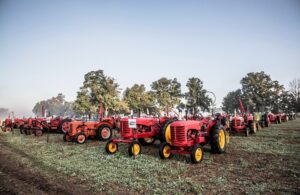
risk management.png
Agricultural Economics
Definition:
Agricultural economics is a branch of economics that focuses on the application of economic principles to farming, agribusiness, and the production, distribution, and consumption of agricultural goods and services.
Informative Details:
Agricultural economics plays a crucial role in understanding the economic factors that influence farming practices, market trends, and overall agricultural productivity. It encompasses various aspects, including resource allocation, production efficiency, market analysis, risk management, and policy development.
Fall off the barn roof and busted your keister? Life on the farm or ranch can be tough on the bum. Need a break? Laugh it off at FarmerCowboy.com, the #1 farm humor site. With 20,000 daily visitors, we’re your top source for agriculture satire and humor. Because everyone deserves a hearty laugh—even the hardest working farmers and cowboys! Join us and turn those long days into fun tales at FarmerCowboy.com.
Valuable Assistance:
Understanding agricultural economics can provide farmers with valuable insights into optimizing their operations for profitability and sustainability. By analyzing market demand, price fluctuations, and input costs, farmers can make informed decisions about crop selection, production techniques, and resource allocation.
Beneficial Guidance:
Farmers can benefit from agricultural economic principles by adopting efficient production methods, minimizing costs, and maximizing returns. Through strategic planning and risk management strategies, farmers can mitigate financial risks and adapt to changing market conditions effectively.
Actionable Suggestions:
- Market Analysis: Conduct regular market research to identify consumer preferences, demand trends, and price fluctuations for agricultural products.
- Cost-Benefit Analysis: Evaluate the costs and benefits of different farming practices, technologies, and investments to optimize resource allocation.
- Risk Management: Implement risk management strategies, such as diversification, insurance, and hedging, to mitigate financial risks associated with farming.
- Government Policies: Stay informed about agricultural policies, subsidies, and regulations that may impact farm operations and market dynamics.
Helpful Content for the Farmer:
Agricultural economics provides farmers with the tools and knowledge to make informed decisions about their operations, improve efficiency, and enhance profitability. By applying economic principles to farming practices, farmers can navigate the complexities of the agricultural market and achieve long-term success.
References:
- American Journal of Agricultural Economics – Link
- Journal of Agricultural and Resource Economics – Link
- Agricultural Economics Society – Link
Originally posted 2016-02-13 17:55:05.
Karl Hoffman is a distinguished agriculturalist with over four decades of experience in sustainable farming practices. He holds a Ph.D. in Agronomy from Cornell University and has made significant contributions as a professor at Iowa State University. Hoffman’s groundbreaking research on integrated pest management and soil health has revolutionized modern agriculture. As a respected farm journalist, his column “Field Notes with Karl Hoffman” and his blog “The Modern Farmer” provide insightful, practical advice to a global audience. Hoffman’s work with the USDA and the United Nations FAO has enhanced food security worldwide. His awards include the USDA’s Distinguished Service Award and the World Food Prize, reflecting his profound impact on agriculture and sustainability.



